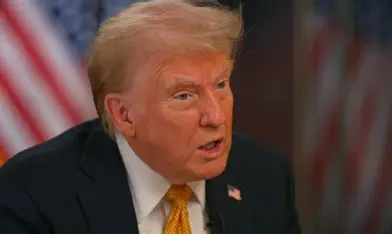US President Donald Trump is reportedly pushing Israeli Prime Minister Benjamin Netanyahu to accept a ceasefire in Gaza as part of an effort to calm rising discontent within his own political base and repair Washington’s global standing. The move comes as Israel faces mounting condemnation over its ongoing military assault on the Gaza Strip, which has drawn international outrage and deep divisions inside the Republican Party.
In a recent speech, Netanyahu framed the ceasefire talks as a triumph for Israel, declaring that “we managed to get Hamas to the negotiating table through our military force.” His tone, however, struck many observers as detached from reality. Washington insiders suggest that the ceasefire push is less about victory and more about damage control, both for Israel’s image abroad and for Trump’s political future at home.
The Biden-era foreign policy consensus was already fracturing within Republican ranks, but Trump’s latest confrontation with Netanyahu signals a new calculation. According to analysts close to the White House, Trump has grown frustrated with Israel’s handling of the conflict, believing that Netanyahu’s hardline tactics have made Israel increasingly isolated on the world stage.
That diplomatic isolation, in turn, is rubbing off on Washington. Within Trump’s “Make America Great Again” base, especially among younger conservatives, there is growing disillusionment with what they see as blind US support for Israel. Many in the MAGA grassroots are now openly questioning the alignment of Trump’s “America First” doctrine with unwavering backing for a foreign ally accused of human rights abuses.
“This is becoming a real problem for Trump’s coalition,” said one political strategist familiar with the campaign’s internal polling. “The sentiment in parts of his base is, ‘I thought this was America First, not Israel First.’ And that message is gaining traction.”
The shift is particularly pronounced among younger Republican voters, many of whom are skeptical of foreign interventions and fatigued by what they perceive as endless overseas entanglements. As Trump eyes the midterm elections, maintaining unity within his movement is critical. The internal pressure is one reason his administration is now moving quickly to position itself as a peace broker rather than a passive bystander.
“When Trump says things like, ‘Bibi took it too far and Israel lost a lot of support in the world, now I’m going to get all that support back,’ he’s speaking not just to world leaders but to his own base,” noted a former senior adviser. “He knows foreign policy optics could define his hold on the Republican Party going forward.”
Meanwhile, the violence in Gaza continues to escalate. The territory’s Government Media Office reported that Israeli forces launched 93 air and artillery strikes within 24 hours, killing at least 70 Palestinians, including 47 in Gaza City alone. The attacks reportedly hit crowded residential areas and temporary shelters housing displaced civilians.
In a statement, Gaza officials condemned the assault as part of an “ongoing genocide against our Palestinian people,” accusing Israel of ignoring global calls for restraint and continuing “the systematic killing of civilians and the destruction of the foundations of life in the Gaza Strip.”
The statement also urged the Trump administration and the broader international community to take “serious, effective and urgent action” to stop Israel’s bombardment. Thus far, US diplomatic efforts have focused on pressuring Netanyahu privately rather than issuing public ultimatums.
Trump’s political calculus appears to be guided as much by domestic concerns as by foreign policy strategy. His advisers reportedly see the Gaza conflict as a potential flashpoint that could divide Republicans heading into a critical election cycle. The president’s emphasis on reclaiming America’s moral standing abroad is being framed as a way to keep his populist coalition intact.
The recent spike in civilian casualties has also deepened divisions in Congress, where a growing number of lawmakers, including several prominent Republicans, have begun calling for a reassessment of US military aid to Israel. This shift reflects the broader generational divide within the party, as younger voters express increasing opposition to unconditional support for Israeli military actions.
Diplomatic observers say the White House’s insistence on a ceasefire underscores a wider recognition that the conflict’s continuation risks isolating the United States from its European and Arab partners. Both France and Qatar have reportedly urged Washington to step in more decisively to halt the violence.
For Netanyahu, the ceasefire presents a political tightrope. Having framed the Gaza campaign as a fight for Israel’s security, he now faces the challenge of accepting terms that could be perceived by hardliners at home as a retreat. Yet with US pressure mounting and global patience wearing thin, his room for maneuver appears limited.
Trump’s calculation, analysts say, is both strategic and self-preserving. By positioning himself as the leader who can rein in Israel and restore Washington’s credibility, he seeks to recast his image as a pragmatic statesman capable of balancing strength with restraint. Whether that strategy succeeds will depend not only on developments in Gaza but also on how his base interprets his handling of America’s most controversial alliance.
As the violence persists and political tempers flare, the US now finds itself in a delicate balancing act—caught between loyalty to an embattled ally and the growing realization that domestic political costs may outweigh foreign policy gains.



